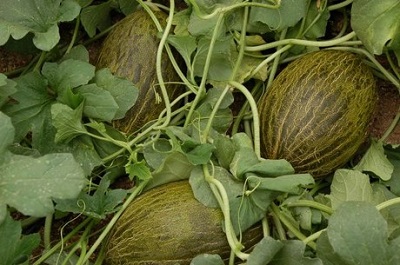"We started with delays last week as a result of the rains in April and early March. Prices were high due to the low volumes and to the expectation motivated by the delays; however, things are different now, because not only is the market better supplied, but demand has also fallen because of the weather in Europe," explains Rubén Trigo, manager of Melones Trigo. "We need sunshine."

Melon prices stand at 0.70 to 1.00 Euro, depending on the export market.
Now, according to Rubén Trigo, the market is at a standstill also in Spain, the main melon consumer. "In Spain's case, despite the already good temperatures in the Mediterranean and other territories, consumers tend to look for the lowest prices, regardless of quality. It is a consequence of the country's deep financial crisis," he affirms.
Piel de Sapo melons are known for their great calibres, rough green skin and crunchy and juicy flesh, reaching a sweetness of 14 to 15 degrees Brix. They weight 3 to 4 kilos on average. "For the domestic market, calibres 3, 4 and 5 are the most demanded, while in the rest of Europe they prefer calibre 6 and up," affirms Rubén.
"It is practically the only melon consumed in Spain; however, we are noticing an increase in demand in other European countries, not only because of their organoleptic qualities, but also due to their long shelf life."
Based in the town of Villaconejos, Melones Trigo ships its melons and watermelons under the VILLAMEJOR brand, both to the domestic and the export market, which mainly includes France and the Netherlands, although the Italian and German markets may also open soon. The production is certified by GlobalGAP and packed on site by Melones Trigo.
"Our current goal, taking into account the economic context, is to maintain and gain a stronger foothold in the markets where we are already present," he concludes.





